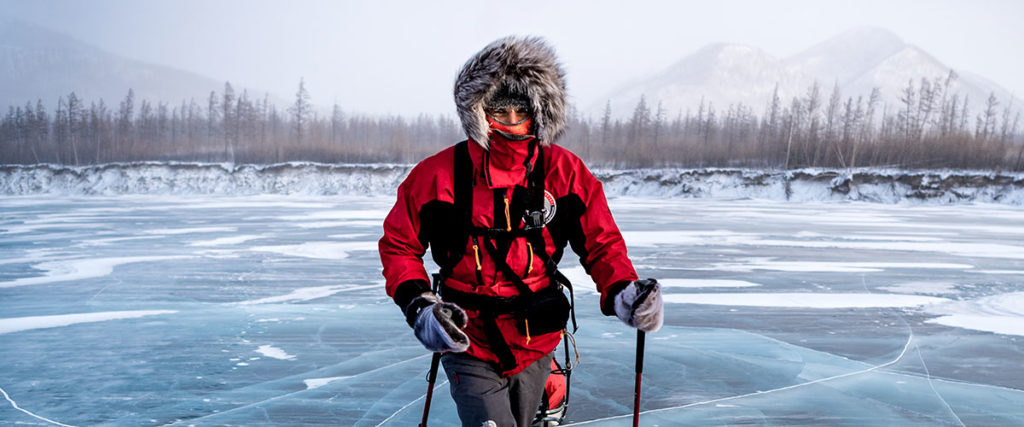Franco-Swiss explorer Christian Clot shares his insights on challenging limits – and how best to navigate through uncertain times.
For as long as he can remember, Christian Clot has been an explorer. Fuelled by a burning desire to understand the world around him, he first began his adventures at the age of 4, exploring the forests surrounding his house in Switzerland. Now aged 47, Christian has participated in over 30 major expeditions under some extraordinarily extreme – even hostile – conditions. He is most well-known for being the first person to enter the central part of Chile’s Cordillera Darwin mountain range back in 2006. In the years since, he’s written several books, produced multiple movies, won numerous awards, and undertaken various scientific explorations with a special focus on studying the adaptive capacities of the human body. Here, he talks Hive Life through his experiences and learnings and shares his hard-earned tips on adapting through challenging times.
What has been the biggest challenge you’ve faced on an expedition?
The mentality is always the most difficult thing to deal with because you have a lot of fatigue; you are under stress, under fear. I’ve been on expeditions in extreme environments with incredible temperatures, with humidity, with a lot of animals or adverse conditions surrounding me and when you stay in these situations for a long time, your physical body can only help you survive for a few days. But after that, if you don’t have a strong mentality, a strong way to think or the right purpose to be here, you won’t be able to cope with the situation. That’s the first thing – you need time to put your brain to rest. You have to understand that you are not stronger than nature; you have to adapt yourself to nature rather than trying to adapt nature to you.
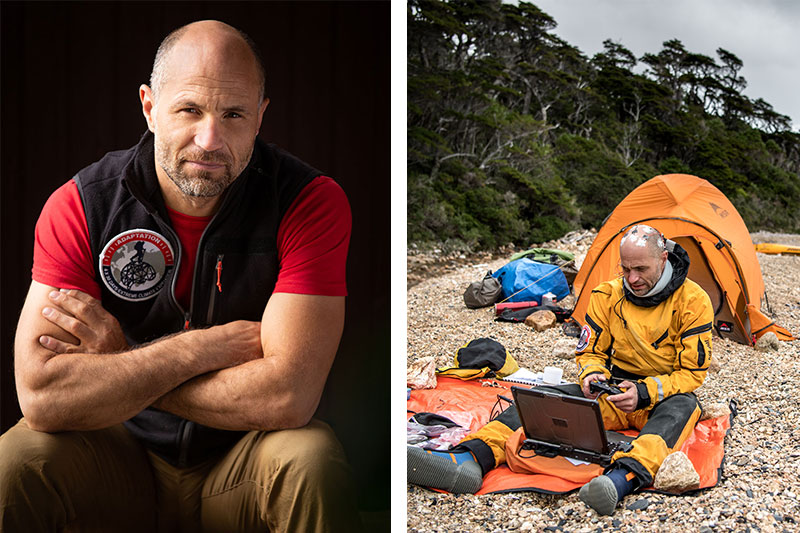
What is your main motivator?
My biggest mission is to help people. I want to help humanity change, to help ensure that humanity has a future. I am one of the millions of people trying to do that – everybody is important in helping humanity to be sustainable and to have a future. My way of doing that is to help people understand how the brain adapts to new situations and to teach them how they can prepare and change the brain to face any kind of situation.
How do you deal with mental fatigue?
It has a lot to do with imagination. When things are bad and you begin to get too tired or lonely, you need to find things that will help you. The first thing is to think of what you love and what makes you feel happy. These can be small things, like a sunset or a sunrise, a bird flying through the air, flowers – something that will help you experience a nice feeling that makes you go, “Oh wow, that’s beautiful.” Focusing on the things you like is really important.
The second thing is that you need to remember why you’re here. You had a good reason to come – what is this reason? Try to think back to “I’m here because I have a purpose. What is my purpose?” When you focus on this, you understand, “Okay, I’m here. It’s bad and I’m suffering a lot, but I have a good reason to be here.”
The third thing is to think about the people you love. Love is the strongest tool you have when you’re on an expedition. But, it’s not the memory of the people you love that is important; it’s about thinking of the people you want to see again and the reasons you have to fight, the reasons you have to survive because, after everything, you will be able to return to those people you love. It’s the strongest reason you have to fight for something.
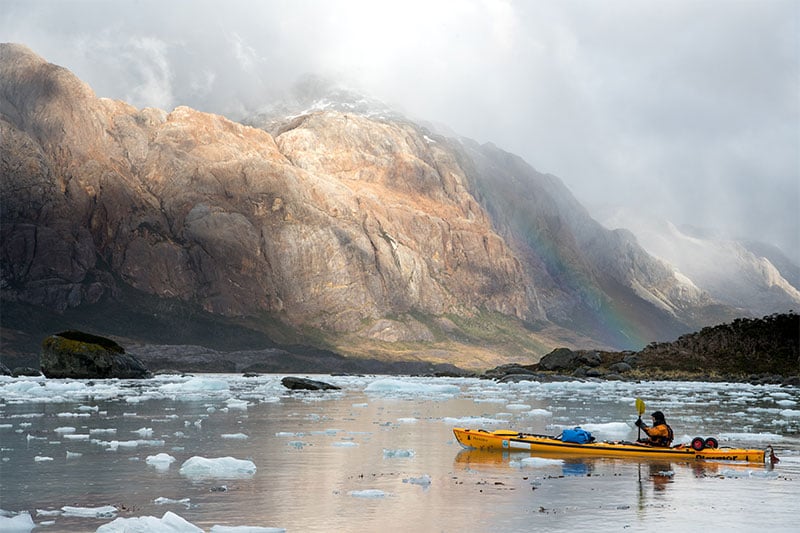
In times of uncertainty, what’s the best way to adapt?
There are three main things you need in order to adapt.
The first is acceptance. You need to accept the situation as it is, not as how you want it to be or how you dreamt it, but as the situation really is. Once you accept the situation, you can start thinking about what you have to do and how you are going to deal with it. You can imagine the future you want and begin your journey in making that vision real.
The second thing you need is stability. You can’t adapt if you are unstable. If you don’t have enough food or security, you won’t have the mental capacity to think of the future. People need to feel safe; they need to not fear what is happening in their lives. In the past, we’ve gotten so used to issues like tsunamis, earthquakes and epidemics only affecting poor countries and people without any resources. We’d always think, “It’s bad, but it’s not in our country.” But now, for instance, the virus is everywhere – and mainly in Europe. So, we have to consider a new way of thinking – we have to consider that environmental crises can happen everywhere, even in rich countries. Our countries need to consider everything differently; we need to help everyone feel safe and secure.
The third thing is education. We need to put time and money into education, not only in the poorest countries, but also in occidental countries. We stress a lot on memory. We focus on learning knowledge, but we don’t learn to use intuition or emotions; we don’t learn to listen. We also need to educate everyone in the world in the same capacity, to educate women in the exact same way as men. We need to use all the brainpower we have in the world and put time and money into changing education. We’ve seen that things are considerably better in places where women are educated and free to be in charge. Everybody should be free to be a leader if he or she has the competencies. There are a lot of things we have to change in education. And if we can do these things, we will be more adaptable.
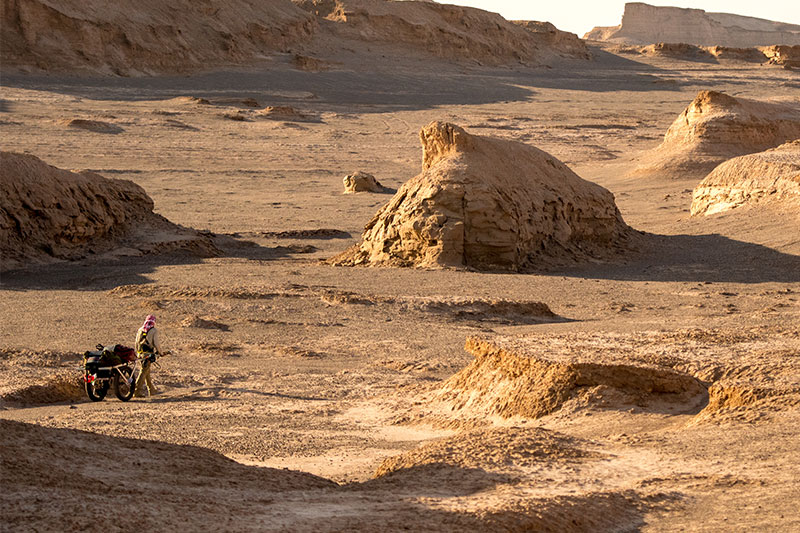
Any advice for aspiring explorers?
Anybody can be an explorer. Exploration is not just about going to remote areas and exploring extreme environments. It’s a way of trying to understand what we don’t know, to consider every situation and to look at things differently. There’s a lot we can explore in each field, whether it be in medicine, technology… or anything. It’s a way of thinking, really – the idea of being open, being ready to understand new things, listen to new ideas and put them together to try to form new knowledge. That’s what exploration is.
What’s next for you?
I plan to continue my work in trying to understand how the brain works when facing changes. We’ve begun new studies during this COVID-19 situation to try to understand how people act and react. If all goes well, next year we’ll hopefully also have a huge expedition with 24 people. For the first time, we’ll be able to see how a group acts and reacts when facing extreme environments, to see how they come together to talk and find new ideas and solutions when facing unfamiliar conditions.
Responses have been edited for clarity.
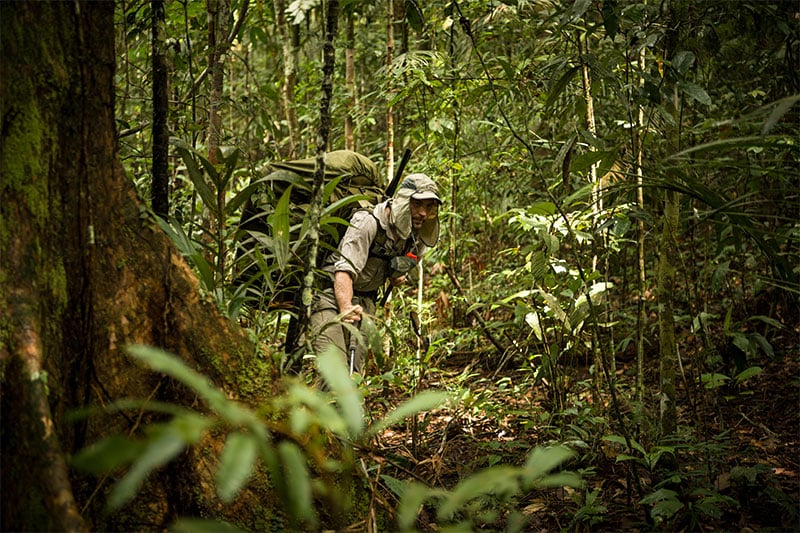
More about Christian Clot
Author, researcher, and professional explorer Christian Clot has gone on over 30 major expeditions in extreme environments worldwide, ranging from the marine channels of Patagonia and the source of the Nile in East Africa to the Andes Mountains and the summits of Nepal. Since 2006, he has been exploring human adaptation in response to change, studying the cognitive, psychological and physiological changes caused by exposure to extreme conditions. In 2015, he founded the Human Adaptation Institute, a research organisation dedicated to learning how our brains adapt in response to new situations and challenges. For more information about Christian Clot and his projects, please visit www.christianclot.com and www.adaptation-institute.com.
Photo Credit (headshot): Bruno Mazodier / Christian Clot / Human Adaptation Institute
Photo Credit (expeditions): Lucas Santucci / Agence Zeppelin / Human Adaptation Institute
Related Articles
Off the Grid: Polar Explorer Ben Saunders Defines His Limit-Defying Career
An Explorer’s Calling: Henry Cookson on Navigating Uncertainty, Fear & Inspiration
British Adventurer Rob Lilwall Shares His Thoughts on Embracing Challenges
